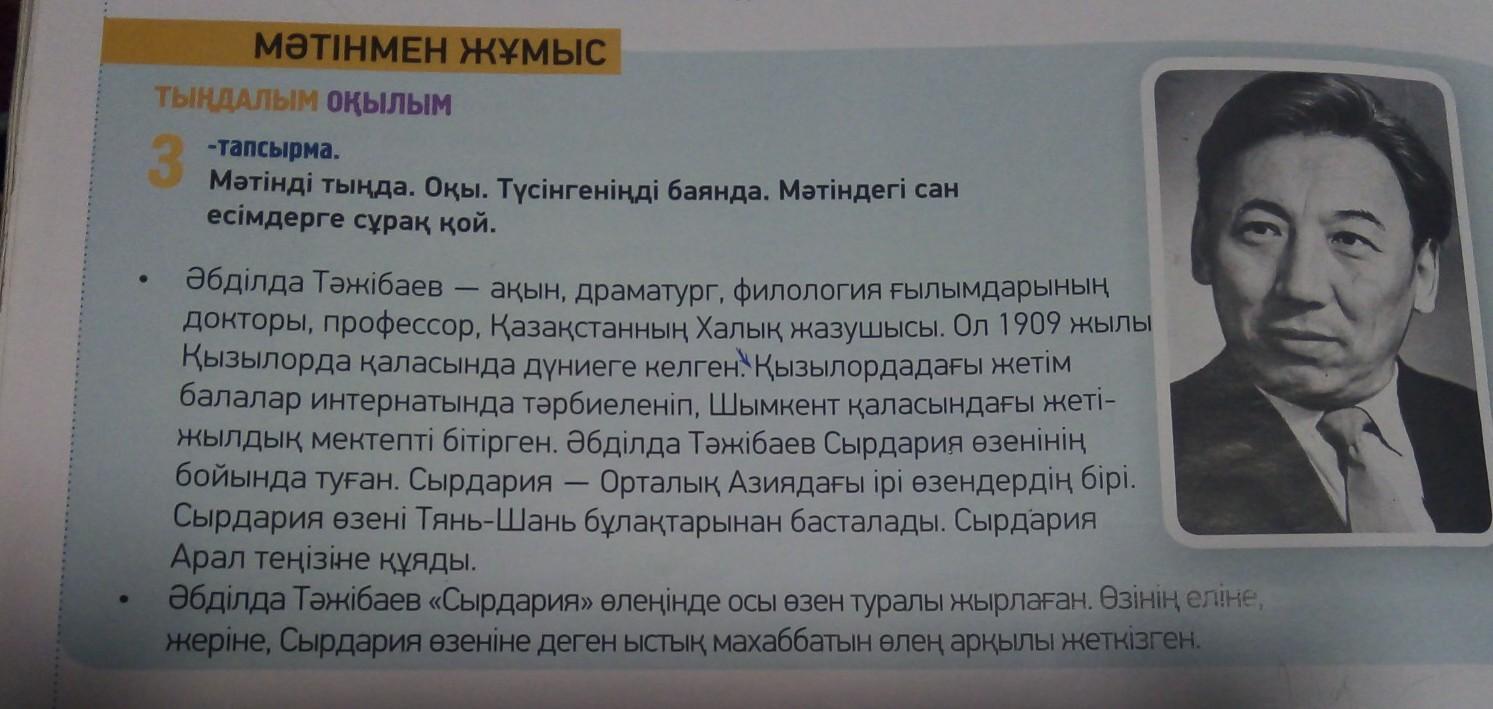Предмет: Қазақ тiлi,
автор: ninakosenko1974
MUTIHMEH МЫС ТЫНАЛЫМ Оқылым Тапсырма. Мәтінді тыңда. Оқы. Түсінгеніңді баянда. Мәтіндегі сан есімдерге сұрақ қой, Әбділда Тәжібаев ақын, драматург, филология ғылымдарының докторы, профессор, Қазақстанның халық жазушысы, Ол 1909 жылы Қызылорда қаласында дүниеге келген, Қызылордадағы жетім балалар интернатында тәрбиеленіп, Шымкент қаласындағы жеті - жылдық мектепті бітірген. Әбділда Тәжібаев Сырдария өзенінің бойында туған. Сырдария - Орталық Азиядағы ірі өзендердің бірі. , Сырдария өзені Тянь-Шань бұлаңтарынан басталады. Сырдария Арал теңізіне құяды, Әбділда Тәжібаев «Сырдария» өлеңінде осы өзен туралы жырлаған, Өзінің еліне, жеріне, Сырдария өзеніне деген ЫСТЫҚ, махаббатын өлең арқылы жеткізген.
СРОЧНООООООО ПЕРЕСКАЗ
Приложения:

Ответы
Автор ответа:
1
Әбділдә Тәжілбаев -ақын ,профессор.1909 жылы дүниеге келген .Ол кісі Сырдария өзеніңің бойында туған сондықтан Сырдария жырын жазған.Сырдария өзініңе сезімін білдірген
Похожие вопросы
Предмет: Английский язык,
автор: Alenalek39gmailcom
Предмет: Английский язык,
автор: Alenalek39gmailcom
Предмет: Русский язык,
автор: Regina011019991
Предмет: Математика,
автор: ivankochergin1992